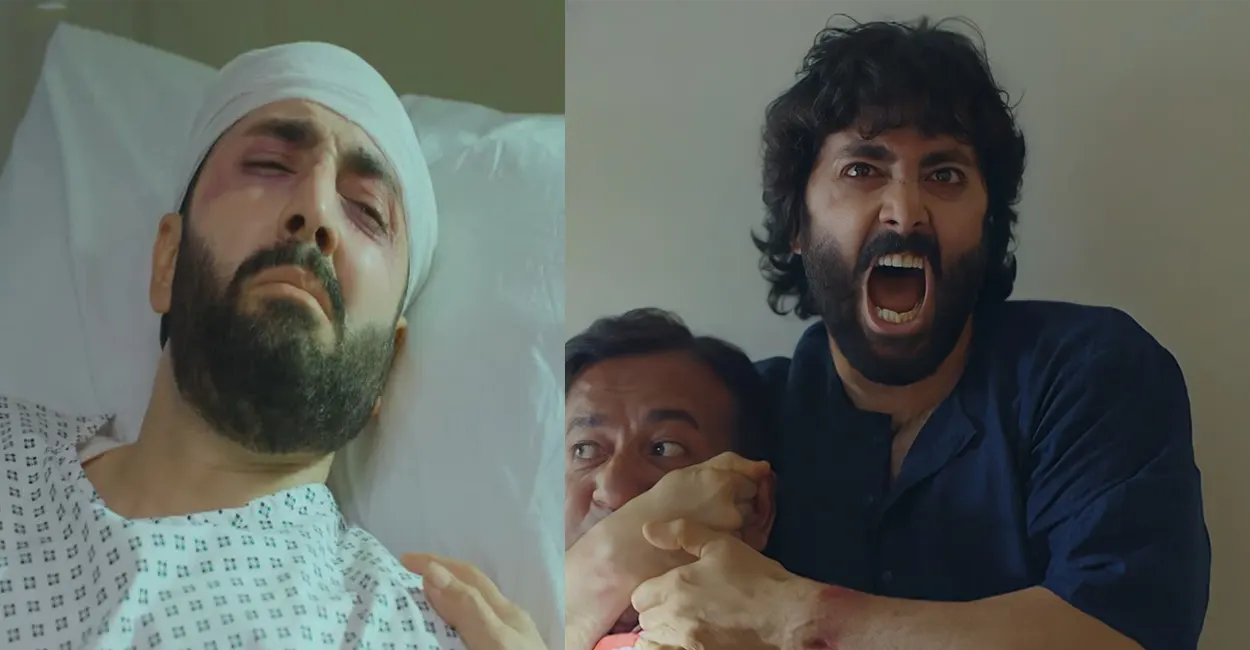By maleeha zahid
Danish Taimoor has once again taken social media by storm, this time for his over-the-top portrayal of mental illness in a recent episode of Sher. The now-viral psych ward scene, where his character Sher Zaman breaks down in a scribbled-up room, has left viewers laughing—and questioning the drama’s portrayal of mental health. From dramatic lines like “Shut up, I am sad” to bizarre scribbles of “Corona Virus” in Urdu, the scene quickly became meme gold.
The set design did not hold back either. The walls, cluttered with chaotic messages and random brain diagrams in cheap photo frames, failed to reflect the professional setting of an actual psychiatric hospital. Sher, seen shackled to a bed like a dangerous criminal, sparked more confusion than concern. The scene’s tone unintentionally leaned more towards parody than an authentic depiction of a mental health crisis.
As expected, social media platforms, especially TikTok and X, erupted with reactions. One user joked, “Me as a kid after being scolded,” while another wrote, “How I feel trying to explain something logical to my desi coworkers.” Another simply noted, “It literally said coronavirus,” highlighting the randomness of the wall scribbles. Meanwhile, “Shut up, I am sad” has officially become the internet’s latest catchphrase.
While the online jokes are relentless, the scene’s viral nature also shines a light on a deeper issue: the lack of responsible representation of mental health in Pakistani dramas. Many viewers compared Sher to older, better-handled portrayals like Main Abdul Qadir Hoon, pointing out how far the industry has regressed in depicting psychological struggles.
Despite the buzz, the dramatization and exaggeration of Sher’s breakdown have drawn criticism for lacking sensitivity and realism. Critics are calling on production houses, actors, and writers to treat mental health narratives with respect, urging a shift toward more authentic and compassionate storytelling. Entertainment, after all, has the power to shape public understanding—and this time, the message missed the mark.
With memes flooding timelines and criticism growing, one thing is clear: while Sher may have captured the internet’s attention, it also sparked an overdue conversation about mental health in mainstream media.
